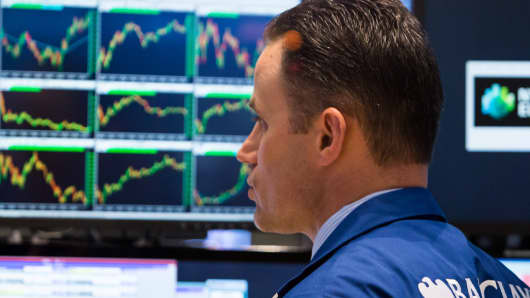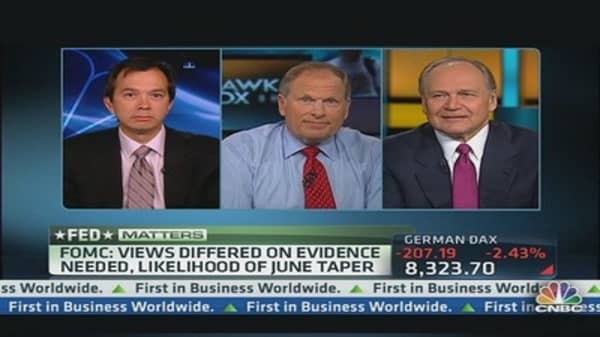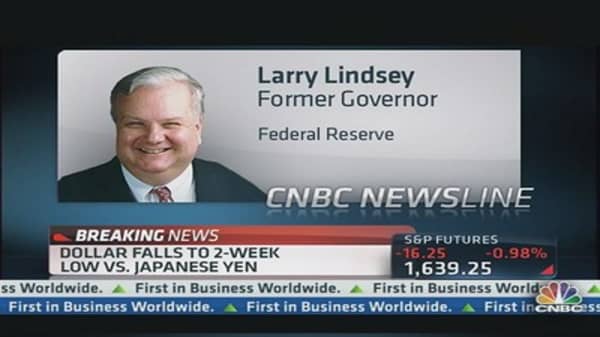U.S. stock futures pointed to a sharply lower opening Thursday morning, following the 7.3 percent sell-off in Japan's Nikkei stock average and soaring 10-year Japanese government bond yields to over 1 percent overnight.
(Read More: US Stocks Seen Down on Fed Fears)
Investors were discouraged by weaker economic data from China, but their top concern was whether the Federal Reserve may start to taper its $85 billion a month bond-buying program sooner than expected.
Wednesday afternoon, the Fed minutes showed that "a number of participants expressed willingness" to scale back asset purchases if U.S. economic data suggested sufficiently strong and sustained growth.
(Read More: Fed Mulls Tapering as Soon as June: Minutes)
Earlier in the day, Fed Chairman Ben Bernanke talked along the same lines in congressional testimony—saying any near-term decision on scaling back quantitative easing depends on an improvement in jobs data.
(Read More: Bernanke: Too Soon to Taper Bond Buys)
A series of leading market analysts and experts appeared on CNBC's "Squawk Box" to read the tea leaves on whether Thursday's global slump is a bump in the road for U.S. stocks or the start of something bigger.








